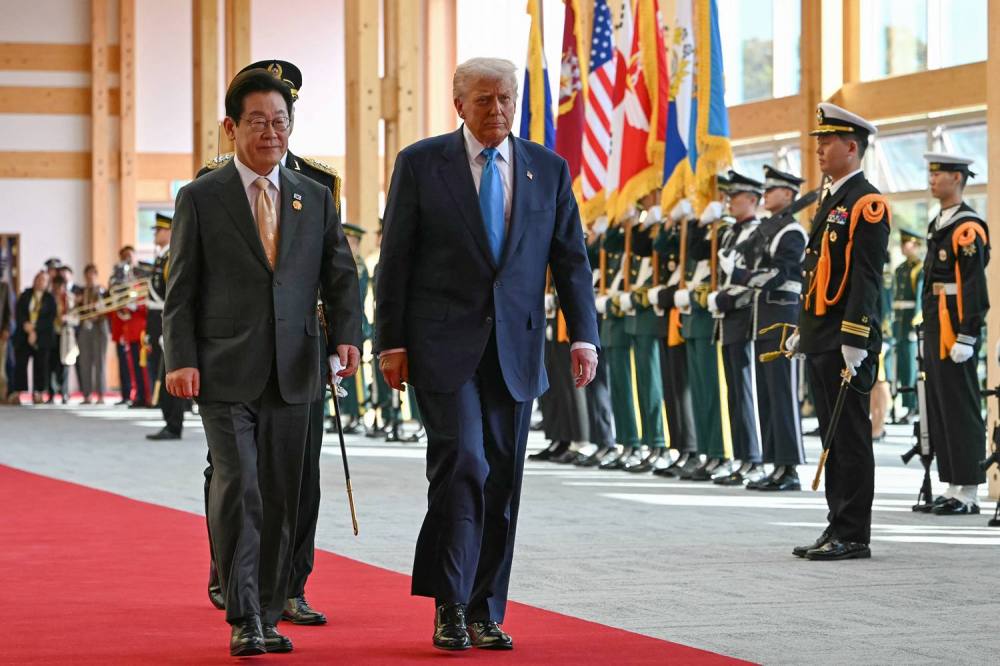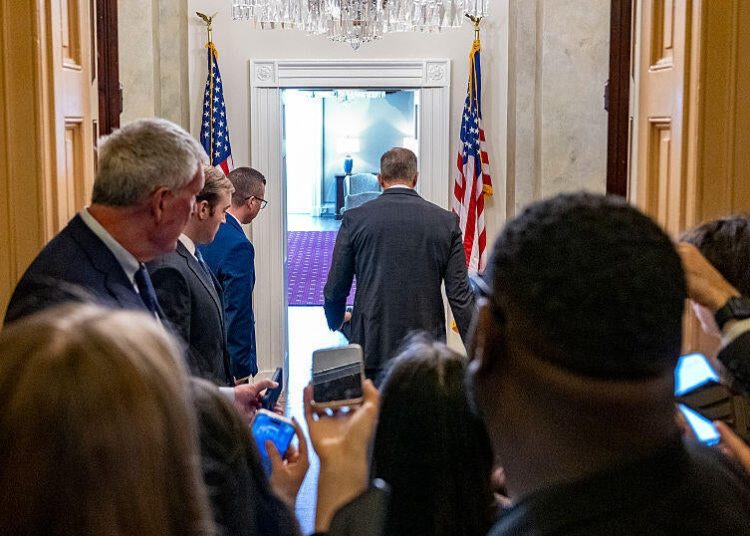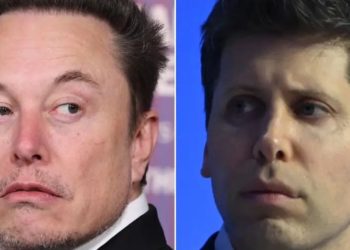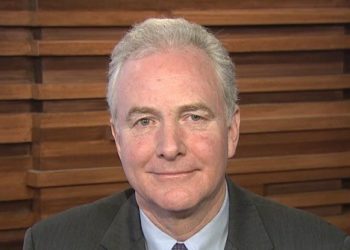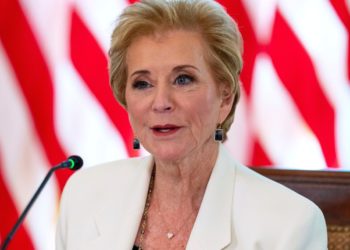Welcome back to Foreign Policy’s Situation Report, where your co-authors engaged in serious diplomatic and trade negotiations over their respective contributions to today’s newsletter.
On that note, here’s what’s on tap for the day: Trump’s Asia deals give defense a boost before he makes a puzzling nuclear claim, and Nvidia CEO Jensen Huang makes a MAGA pit stop in Washington.
Seoul Plane
U.S. President Donald Trump waited nine months into his second term to make a trip to Asia, but the flurry of agreements he signed with countries in the region—as well as a temporary trade truce with China—suggests that the visit was worth his while.
While trade, tariffs, and critical minerals dominated the agenda, tucked into several of those agreements were deals on defense investment, cooperation, and production. But Trump also caused some discomfort and alarm by first reiterating a push for allies such as South Korea and Japan to spend more on their own defense and then suddenly announcing on his Truth Social platform that the United States would “start testing our Nuclear Weapons” (more on the latter below).
Meanwhile, Trump got some big defense dollars to tout.
South Korea signed a $2.3 billion deal with U.S. defense contractor L3Harris Technologies to develop “warning and control” aircraft for its air force, according to a White House fact sheet.
The two countries also furthered their growing shipbuilding partnership, with Korean firms Hyundai and Hanwha Ocean contributing to more than $10 billion to help modernize U.S. shipyards.
In Japan, Trump made a deal with newly elected Japanese Prime Minister Sanae Takaichi to cooperate on shipbuilding. The two countries also committed to coordinating more closely on investment mechanisms related to national security, and Tokyo said it would “pursue new sanctions frameworks to target vessels linked to shadow fleets.”
Japan also began receiving medium-range air-to-air missiles for its U.S.-made F-35 fighter jets on an “accelerated” basis, the White House said.
Several deals agreed at the Association of Southeast Asian Nations (ASEAN) summit in Malaysia earlier in the week also furthered defense and security cooperation with Washington, including a memorandum of understanding with Malaysia on “maritime security and maritime domain awareness.” Malaysia and the Philippines became the latest countries to sign on to the Artemis Accords, a set of U.S.-led principles for space exploration.
The United States also agreed to remove an arms embargo on Cambodia that it had imposed in 2021 over the country’s ties to the Chinese military and to resume bilateral military exercises for the first time since 2017.
U.S. aircraft manufacturer Boeing was one of the biggest beneficiaries of the trip, securing pledges to sell 103 planes to South Korea’s flag carrier and up to 60 to Malaysia.
Trump’s defense dealmaking in the region began days before he touched down, with a visit to Washington by Australian Prime Minister Anthony Albanese yielding nearly $6 billion in planned purchases of U.S. unmanned underwater vehicles, helicopters, and missiles in addition to a reiterated commitment to the trilateral AUKUS submarine deal.
Let’s Get Personnel
The FBI is fervently opposed to a House bill that would give Director of National Intelligence Tulsi Gabbard increased oversight of counterintelligence, revealing an apparent turf battle within the intelligence community under the Trump administration. The proposal would make the Office of the Director of National Intelligence the federal government’s top counterintelligence agency.
The FBI has long been the country’s lead agency for counterintelligence, or the work of thwarting foreign spies and intelligence threats, and the bureau wrote a letter to Congress expressing its “strong objection” to the proposal. In the unclassified letter, the FBI said the proposed changes “would cause serious and long-lasting damage” to U.S. national security.
On the Button
What should be high on your radar, if it isn’t already.
Nuclear? Unclear. Trump on Wednesday posted on Truth Social that he had ordered the Pentagon to “immediately” start testing nuclear weapons on an “equal basis” with other countries. The announcement is confusing for a number of reasons. The United States, Russia, and China have not tested live nuclear weapons since the 1990s. And other than North Korea, no nuclear power has carried out nuclear explosive tests in more than two decades.
The White House did not immediately respond to SitRep’s request for comment on whether Trump has ordered live nuclear tests or merely wants to see the Pentagon ramp up testing of nuclear-capable weapons—a practice that’s already routine. But in comments to reporters aboard Air Force One on his way back to Washington from Asia, Trump said other countries “seem to all be nuclear testing,” adding, “I guess we have to test.” Trump said details on timing would be announced later. Despite upholding a voluntary moratorium on nuclear detonation for decades, the United States has maintained an ability to resume underground tests at a facility in Nevada, according to the Congressional Research Service, but preparation for a test could take up to 36 months.
Trump’s statement, which raised alarm among Democratic lawmakers and nuclear experts, came shortly before he met with Chinese President Xi Jinping. China has increased its nuclear stockpile in recent years, and Trump may have been attempting to send a signal to Xi. Russia has also tested nuclear-capable and nuclear-powered weapons in recent days, but this is far from the same level of significance as detonating a nuclear warhead. Along these lines, the Kremlin offered a somewhat bewildered reaction to Trump’s statement, stating, “We didn’t know that anyone was testing,” while warning that Moscow would follow suit if Washington abandoned the moratorium.
U.S. troop drawdown in Eastern Europe. The United States is withdrawing some troops from several NATO countries, including a few that border Ukraine. The Trump administration has faced rare bipartisan criticism over the move. Our colleague Sam Skove offers more details on the controversial decision.
Gaza cease-fire tested (again). As John reported, Israel conducted deadly airstrikes in Gaza this week in response to alleged cease-fire violations by Hamas. The strikes killed more than 100 people in Gaza. Israel conducted the strikes after an attack killed one of its soldiers, but Hamas denied involvement.
This was not the first time that the Trump-brokered truce had been tested since it began on Oct. 10. But the Trump administration downplayed the significance of the Israeli strikes and said they did not jeopardize the cease-fire, which Israel on Wednesday said was back on.
Snapshot
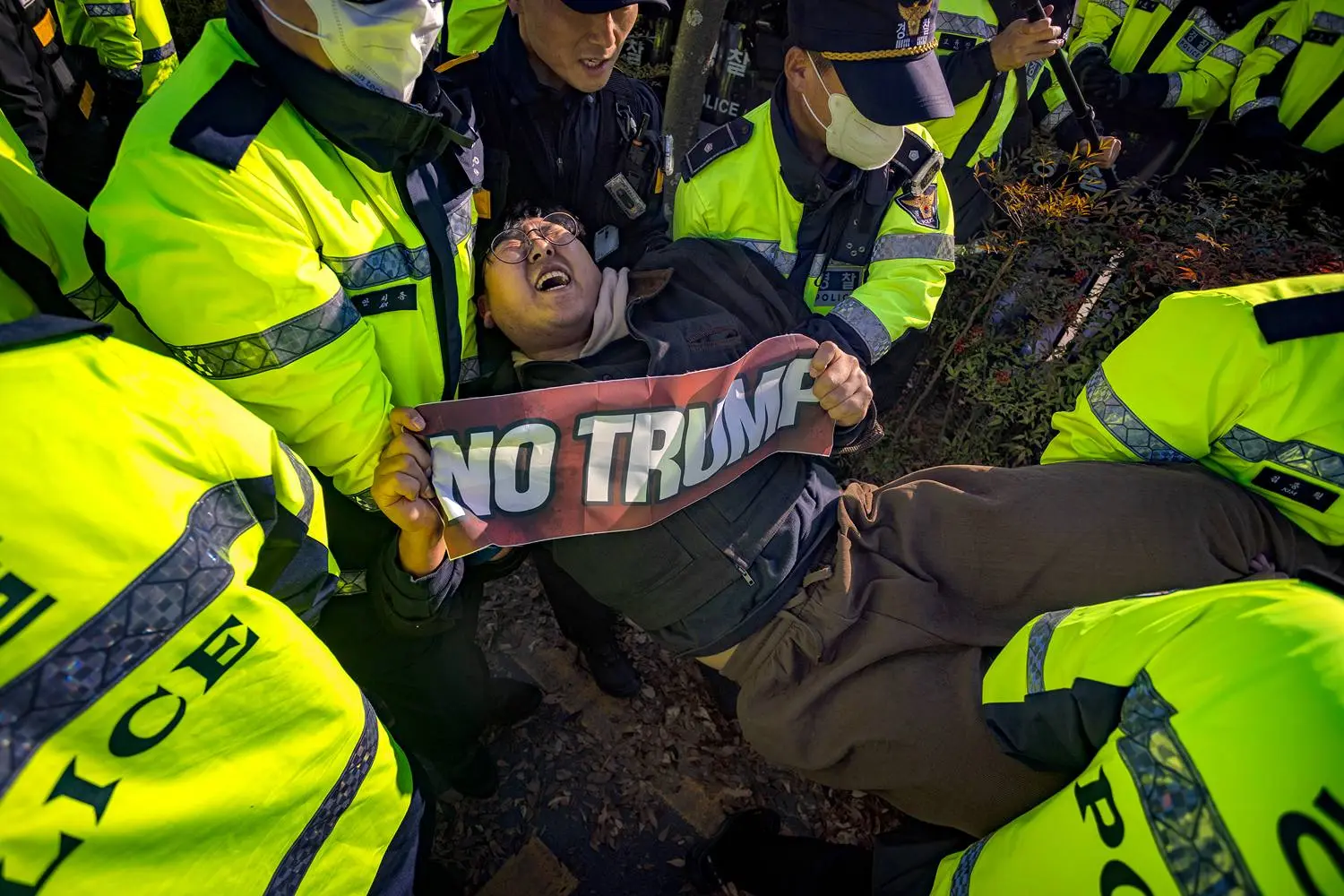
Nvidia’s MAGA Moment
The world’s biggest company, which hit a market value of $5 trillion this week, hosted a huge conference in Washington, where CEO Jensen Huang repeatedly paid tribute to the city’s most prominent resident. “Trump deserves enormous credit” for energy policies that benefit the artificial intelligence industry that Nvidia’s chips and data centers are at the forefront of, Huang said during a nearly two-hour keynote address that he concluded with a nod to Trump’s signature slogan: “Thank you all for your service in making America great again.”
Nvidia has benefited enormously from the Trump administration’s goal of ushering in a U.S.-led global AI boom, signing major deals in Saudi Arabia and the United Arab Emirates during Trump’s trip to the region and getting the administration’s approval to sell some of its AI chips to China despite national security concerns. Huang has been pushing for more market access to China, and he flew to South Korea on Thursday as Trump met with Xi there; however, the talks between the two world leaders did not result in any immediate concessions for Nvidia.
“The benefit to the United States is for American technology to be available in China to win the hearts and minds of their developers,” Huang told reporters (including SitRep) on Wednesday. “For both countries, I really believe that having American companies serve that market is beneficial.”
Asked about his close relationship with Trump, the CEO said: “I come with only one purpose only, which is to inform and to be in service of the president as he thinks about how to make America great and do the best thing for America.” Yet Huang also proudly confirmed that Nvidia was one of the companies funding Trump’s effort to build a new White House ballroom, for which the U.S. president has torn down the East Wing of the White House.
Put On Your Radar
Saturday, Nov. 1: The ASEAN defense ministers’ meeting is set to begin in Kuala Lumpur, Malaysia.
Sunday, Nov. 2: Eight OPEC+ countries are set to hold an online meeting.
Tuesday, Nov. 4: Gubernatorial elections are set to be held in New Jersey and Virginia, while a mayoral election will be held in New York City.
The French National Assembly is set to hold a vote on the 2026 budget.
Wednesday, Nov. 5: The U.S. Supreme Court is poised to hear oral arguments in cases over Trump’s power to impose sweeping tariffs.
Quote of the Week
“It’s pretty clear I’m not allowed to run. It’s too bad.”
—Trump acknowledging that the U.S. Constitution bars him from running for a third term, a prospect that the president and his allies had previously suggested was on the table.
FP’s Most Read This Week
- Xi May Have Miscalculated on Rare Earths by Alasdair Phillips-Robins
- Is the U.S. Ready for War With China? by Franz-Stefan Gady
- It’s (Still) Henry Kissinger’s World by Julian E. Zelizer
The post The Defense Implications of Trump’s Asia Trip appeared first on Foreign Policy.
